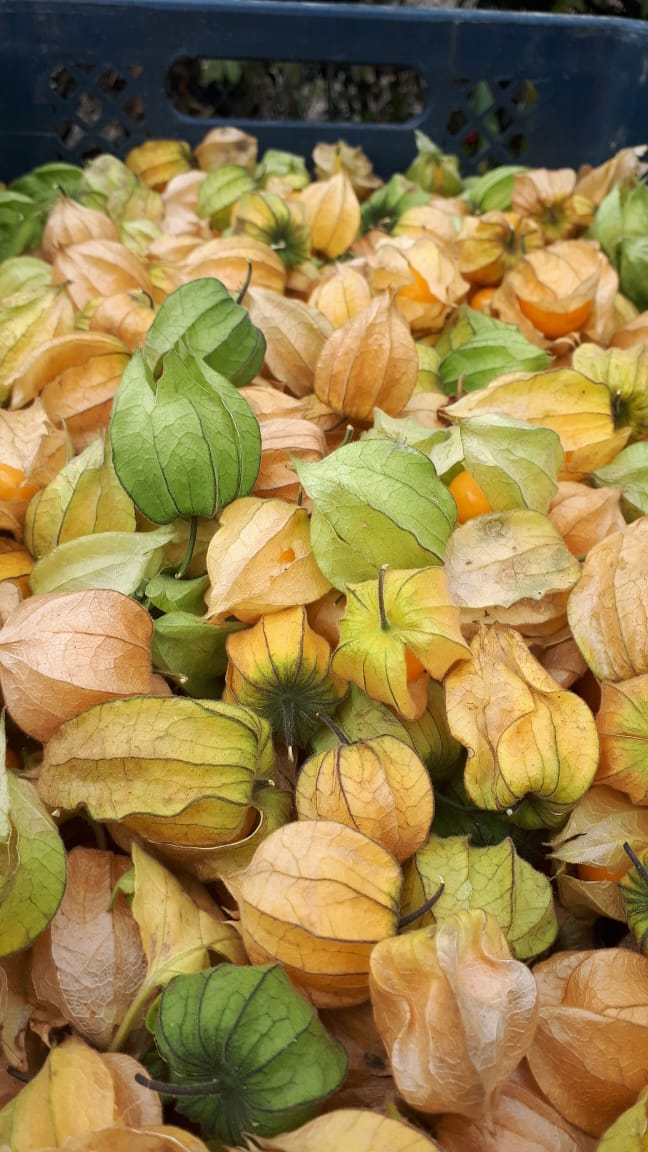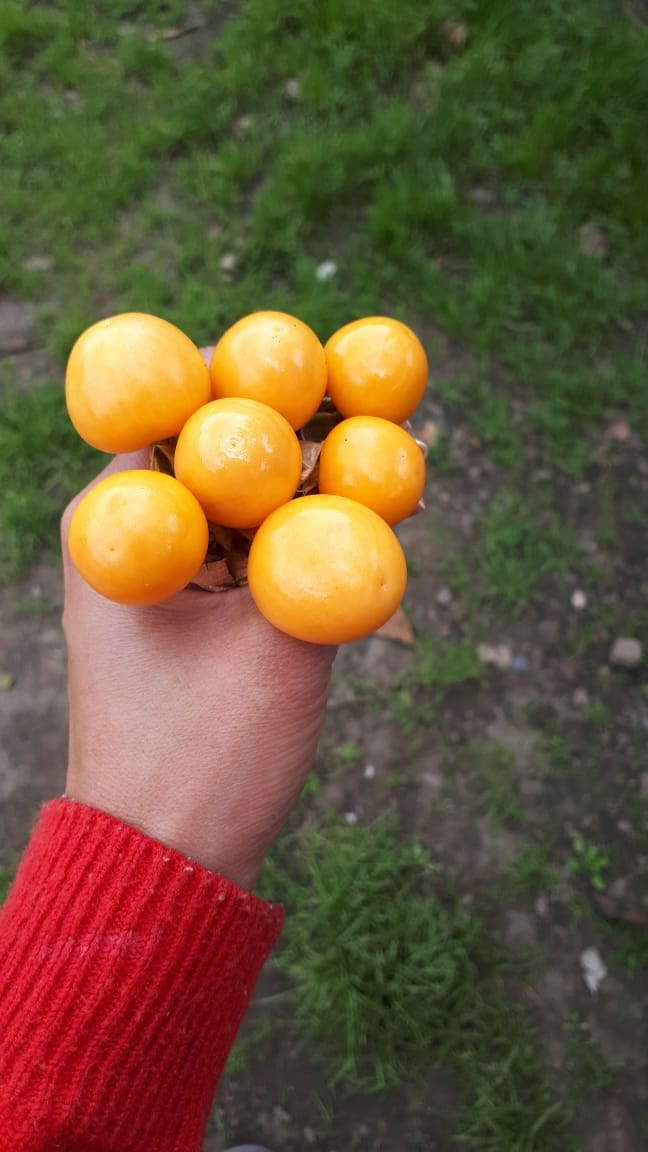The uchuva is a small fruit, round, yellow, soft texture and a pleasant flavor. It is a very appetizing, exotic fruit known for its contribution in vitamins and phosphorus. It belongs to the family Solanaceae and the genus Physalis, has more than eighty varieties found in the wild and which are characterized by their fruits are enclosed within a chalice or capacho.
Uchuva (Physalis peruviana L.) in Colombia it grows in semi-wild state between 1,500 and 3,000 meters, but the best ecological conditions for cultivation are found between 1,800 and 2,800 meters, with an average temperature ranging between 13 and 18 ° C, and a rainfall between 1,000 and 2,000 mm of annual rainfall well distributed.
Uchuva is a small fruit, round, yellow, soft texture and a pleasant flavor. Uchuva semi-acid fruit is a small, round, yellow, sweet (measured between 1.25 and 2 cm in diameter), and is wrapped in a protective shell.
-
It is rich in vitamin C
-
It is a source of provitamin A (3,000 I.U. of carotene per 100 g)
-
It contains protein
-
It contains phosphorus
-
Purifies the human blood
-
Helps eliminate kidney albumin
-
Used to treat diabetes
-
Invigorates the optic nerve
-
Helps prevent eye diseases (cataracts and myopia)
-
Alleviates sore throats and mouth
-
Controls amebiasis
-
Destroys intestinal parasites
-
It is a first-softening system
-
Favors treating people with prostate problems
-
It is a natural tranquilizer
-
Fresh fruit
-
In frostings
-
In jams
-
Ice creams
-
Juiced
-
Deserts
-
Salads
-
In syrup
-
Gourmet dishes
-
In cocktails
-
In liquors
-
Canned
-
To decorate cakes
NUTRITIONAL CONTENT
| CONTENT PER 100 GRS PULP | UNITS |
| Calories | 49 |
| Proteins | 1,5 gr |
| Calcium | 9 mgr |
| Fat | 0,5 gr |
| Niacin | 0,8 mgr |
| Tiamin | 0,1 mgr |
| Carbohydrate | 11 gr |
| Phosphorus | 21 mgr |
| Vitamin A | 1.730 U |
| Ash | 0,7 gr |
| Water | 85 gr |
| Iron | 1,7 mgr |
| Fyber | 0,4 gr |
| Ascorbic acid | 20 mgr |
| Rivoflabina | 0,17 mgr |



